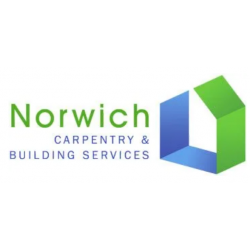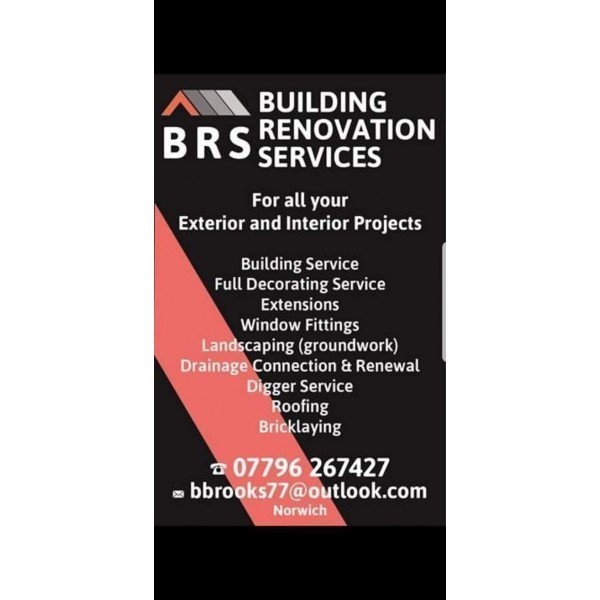Extension Builders in Cromer
Norwich Carpentry & Building Services: Your Trusted Tradespeople in Aylsham, Norfolk
Welcome to Norwich Carpentry... read more »
Welcome to HD Norwich Ltd, your premier choice for all building and renovation needs in Horst... read more »
Welcome to R&J Lubbock Builders, your trusted partner for all building and renovation needs in the vibrant region of Norfolk. Based in th... read more »
Welcome to Building Renovation Services, your go-to experts for all construction needs in Walcott and throughout Norfolk. As a leading pr... read more »
Coast And Country Builders Ltd: Premier Build... read more »
Welcome to GS Carpentry And Plastering, your go-to ex... read more »
Welcome to Octagon Construction Services, your truste... read more »
Sheldrake Construction: Expert Builders and R... read more »
Welcome to Simple Garden Landscaping, your premier ch... read more »
Welcome to RAL Plastering, your go-to experts for all... read more »
Welcome to Spaces4u, your go-to experts for home tran... read more »
Welcome to B H Crowe Builder, your trusted partner fo... read more »
Welcome to P J Starling Carpenter & Builder, your tru... read more »
Welcome to Moyle Developments, your trusted partner f... read more »
Darren Steward Building Services is... read more »
Welcome to JJ Property Services, your trusted partner... read more »
Welcome to Martyn Rump, your go-to experts for all bu... read more »
Welcome to Zsgroundworks@gmail.com, your trusted part... read more »
Welcome to CMP Builders, your go-to experts for all c... read more »
F W Carpentry And Joinery is a disti... read more »
Search Extension Builders in places nearby
Understanding the Role of Extension Builders in Cromer
When it comes to enhancing your home, extension builders in Cromer play a pivotal role. These skilled professionals bring your vision to life, adding space, functionality, and value to your property. Whether you're looking to expand your kitchen, add a new bedroom, or create a home office, extension builders are the experts you need. In this article, we'll explore the various aspects of their work, from planning and design to construction and completion.
The Importance of Home Extensions
Home extensions are more than just additional rooms; they're a way to improve your living space without the hassle of moving. In Cromer, where property prices can be steep, extending your home is often a more cost-effective solution. Extensions can cater to growing families, provide space for hobbies, or even create rental opportunities. With the right extension builder, you can ensure that your project meets your needs and enhances your home's aesthetic appeal.
Choosing the Right Extension Builder
Selecting the right extension builder in Cromer is crucial for the success of your project. Look for builders with a solid reputation, proven experience, and a portfolio of completed projects. It's also important to check for proper licensing and insurance. A good builder will listen to your ideas, offer suggestions, and provide a detailed quote. Don't hesitate to ask for references or visit previous projects to see their work firsthand.
Questions to Ask Potential Builders
- How long have you been in the business?
- Can you provide references from past clients?
- What is your process for handling unexpected issues?
- Do you offer a warranty on your work?
- How do you ensure projects stay on schedule?
Planning Your Home Extension
Before breaking ground, thorough planning is essential. Start by defining your goals and budget. Consider how the extension will integrate with your existing home and the surrounding environment. Engage with an architect or designer to create detailed plans. This stage is also the time to obtain necessary permits and approvals, which your extension builder can often assist with.
Key Considerations in the Planning Stage
- Purpose of the extension
- Budget constraints
- Impact on property value
- Local zoning laws and regulations
- Environmental factors
Designing Your Extension
The design phase is where creativity meets practicality. Work closely with your builder and designer to ensure the extension complements your home's style. Consider factors like natural light, ventilation, and energy efficiency. Modern designs often incorporate open-plan layouts, large windows, and sustainable materials. Remember, a well-designed extension not only adds space but also enhances your home's overall appeal.
Popular Design Trends
- Open-plan living spaces
- Biophilic design elements
- Smart home technology integration
- Use of sustainable materials
- Indoor-outdoor connectivity
The Construction Process
Once the design is finalised and permits are in place, construction can begin. This phase involves site preparation, foundation work, and building the structure. Your extension builder will coordinate with various tradespeople, such as electricians and plumbers, to ensure everything is up to code. Regular communication with your builder is key to addressing any issues promptly and keeping the project on track.
Stages of Construction
- Site preparation and demolition
- Foundation and structural work
- Framing and roofing
- Installation of windows and doors
- Interior finishing and landscaping
Managing Costs and Budget
Budget management is a critical aspect of any home extension project. Work with your builder to create a detailed budget that includes all potential costs. It's wise to set aside a contingency fund for unexpected expenses. Regularly review the budget with your builder to ensure the project remains financially viable. Transparent communication about costs will help prevent surprises and keep the project within your financial limits.
Tips for Staying on Budget
- Prioritise essential features
- Choose cost-effective materials
- Plan for potential delays
- Regularly review expenses
- Negotiate with suppliers
Ensuring Quality and Safety
Quality and safety are paramount in any construction project. Your extension builder should adhere to all relevant building codes and safety standards. Regular inspections and quality checks are essential to ensure the work meets high standards. A reputable builder will also provide a warranty, giving you peace of mind that any issues will be addressed promptly.
Quality Assurance Measures
- Regular site inspections
- Use of high-quality materials
- Compliance with building regulations
- Skilled and experienced tradespeople
- Comprehensive project documentation
Finalising the Project
As the construction phase nears completion, it's time to focus on the finishing touches. This includes painting, flooring, and installing fixtures. Your builder will conduct a final walkthrough with you to ensure everything meets your expectations. Any remaining issues should be addressed before the project is officially completed. Once satisfied, you'll receive all necessary documentation, including warranties and maintenance instructions.
Checklist for Project Completion
- Conduct a final inspection
- Review all documentation
- Ensure all work is completed to satisfaction
- Discuss maintenance and care
- Receive warranty information
Benefits of Hiring Local Extension Builders in Cromer
Choosing local extension builders in Cromer offers several advantages. Local builders have a deep understanding of the area's building regulations and climate conditions. They're also more accessible for site visits and consultations. Supporting local businesses contributes to the community's economy and often results in more personalised service. Additionally, local builders are more likely to have established relationships with local suppliers, potentially reducing costs and delays.
Frequently Asked Questions
What is the average cost of a home extension in Cromer?
The cost varies depending on the size and complexity of the project. On average, you might expect to pay between £1,200 and £2,000 per square metre.
How long does it take to complete a home extension?
Typically, a home extension can take anywhere from three to six months, depending on the project's scope and any unforeseen delays.
Do I need planning permission for a home extension?
In many cases, yes. However, some extensions fall under permitted development rights. It's best to consult with your builder or local council for specific requirements.
Can I live in my home during the extension process?
In most cases, yes, but it might be disruptive. Discuss this with your builder to understand the impact on your daily life.
What should I do if I encounter issues with my builder?
Open communication is key. Discuss your concerns with the builder first. If unresolved, you may need to seek advice from a professional body or legal expert.
How can I ensure my extension is energy efficient?
Incorporate energy-efficient designs, such as proper insulation, double-glazed windows, and energy-efficient appliances. Your builder can offer additional suggestions tailored to your project.
In conclusion, extension builders in Cromer are invaluable partners in transforming your home. By choosing the right builder and carefully planning your project, you can create a space that meets your needs and enhances your lifestyle. With attention to detail and a focus on quality, your home extension will be a worthwhile investment for years to come.
Send a message









